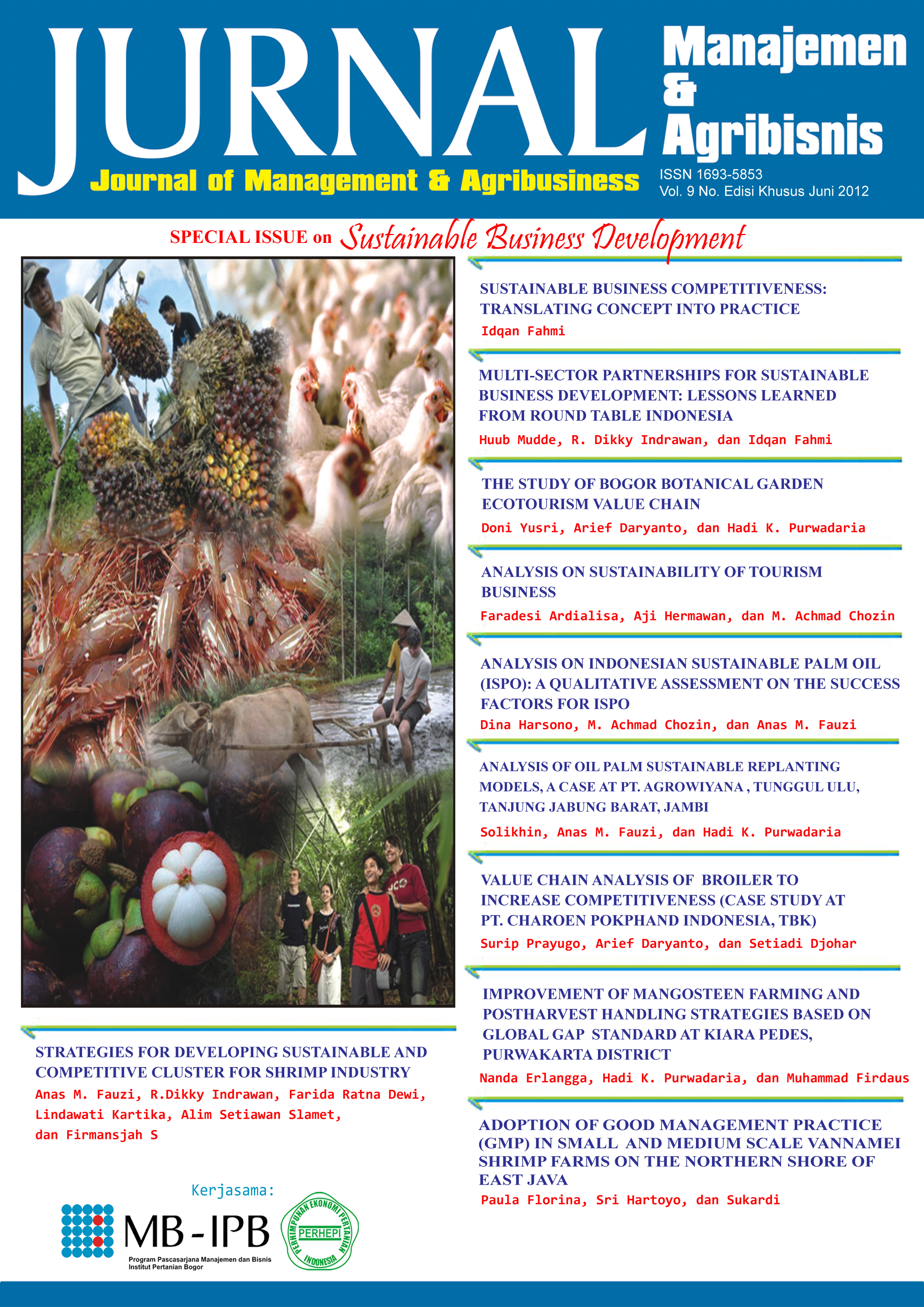MULTI-SECTOR PARTNERSHIPS FOR SUSTAINABLE BUSINESS DEVELOPMENT: LESSONS LEARNED FROM ROUND TABLE INDONESIA
Abstract
Over a period of three years, Bogor Agricultural University/Institut Pertanian Bogor (IPB) and Maastricht School of Management (MsM) have been executing the multi-annual project Round Table Indonesia, www.roundtableindonesia.net. This project aimed at contributing to the improvement of a sustainable business and investment climate in the Indonesian agricultural sector, by strengthening the knowledge capacity, formulating concrete investment opportunities, and facilitating partnerships. As a result, IPB and MsM have developed courses on sustainable business development and facilitated business projects in poultry, mangosteen, palm oil, shrimps, and tourism. All projects are based on in-depth value chain analyses and roundtable meetings with key stakeholders of government, private sector, academia, and civil society. Linking education and applied research with business development will lead to a stronger and more sustainable Indonesian agricultural sector, being of crucial importance for the Indonesian development as a whole.
Keywords: Round Table Indonesia, Sustainable Business Development, Value Chain, Agricultural Sector, IPB, MSM
Authors
Authors who publish with this journal agree to the following terms:
- Authors retain copyright and grant the journal right of first publication with the work simultaneously licensed under a Creative Commons Attribution License that allows others to share the work with an acknowledgement of the work's authorship and initial publication in this journal.
- Authors are able to enter into separate, additional contractual arrangements for the non-exclusive distribution of the journal's published version of the work (e.g., post it to an institutional repository or publish it in a book), with an acknowledgement of its initial publication in this journal.
- Authors are permitted and encouraged to post their work online (e.g., in institutional repositories or on their website) prior to and during the submission process, as it can lead to productive exchanges, as well as earlier and greater citation of published work (See The Effect of Open Access).

